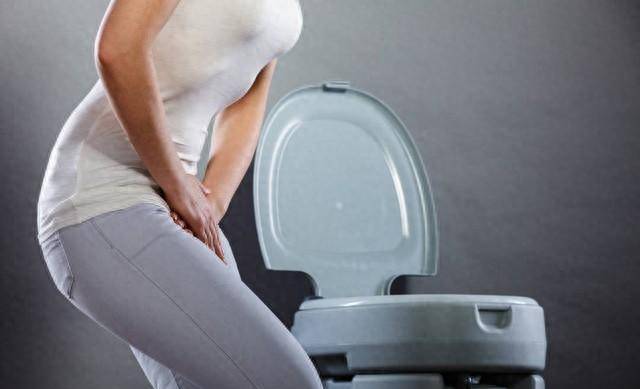At a health lecture, a menopausal woman bravely raised a question that surprised many present: “Do we really not need to consider contraception during menopause?” This question not only revealed a widespread misconception but also exposed the negligence of many people regarding menopause-related health issues, especially sensitive topics such as urinary tract infections and frequent urinary incontinence.
Menopause, a natural transitional period that every woman will experience, comes with a series of complex physiological changes. However, many women have little knowledge about managing their health during this stage, especially regarding contraception and urinary system health. Misconceptions can lead to unexpected health risks, impacting the quality of life. Urinary tract infections and frequent urinary incontinence are not uncommon in menopausal women, but unfortunately, these issues often remain unresolved due to shame or negligence.
Through this article, we will uncover the necessity of contraception during menopause, discuss the causes of urinary tract infections and frequent urinary incontinence, and explore effective treatment methods. Our goal is to provide menopausal women with a comprehensive health management guide to help them better understand their health needs, take appropriate preventive and treatment measures, and gracefully embrace this new stage of life.
Is contraception necessary during menopause?
Physiological changes of menopause and their impact on fertility
As women enter menopause, ovarian function gradually decreases, menstruation becomes irregular and eventually stops, and fertility declines. This process typically begins between the ages of 45 and 55 but varies from person to person.
Changing contraception needs of menopausal women
Due to irregular menstruation and declining ovarian function, menopausal women, although their fertility diminishes, still have a certain possibility of becoming pregnant. Therefore, the need for contraception depends on individual circumstances and lifestyle.
Consulting a doctor and selecting suitable contraception methods
For menopausal women, consulting a doctor to understand their fertility and contraception needs is necessary. Based on individual circumstances, suitable contraception methods such as oral contraceptives, contraceptive rings, patches, etc., can be chosen to ensure safe and effective fertility control.
Prevention and treatment of urinary tract infections
Effective methods for preventing urinary tract infections
Urinary tract infections are a common health issue, but simple preventive measures can effectively reduce their frequency. Firstly, maintaining good personal hygiene is crucial for preventing urinary tract infections. Regularly cleaning the intimate area, using mild washes to clean the vulvar area, and keeping the genital area dry help reduce bacterial growth opportunities.
Secondly, adequate fluid intake is an important step in preventing urinary tract infections. Drinking plenty of water helps dilute bacteria in the urine, reducing their irritation and harm to the urinary tract, thus lowering the risk of infection. It is recommended to drink at least eight glasses of water a day, especially in hot weather or after exercise.
Furthermore, avoiding excessive cleaning is also part of preventing urinary tract infections. Frequent flushing or using cleansers with irritating ingredients can disrupt the natural balance of vaginal flora, increasing the risk of infection. Thus, opting for gentle cleansing products and avoiding frequent washing of the genital area is advised.
Treatment methods for urinary tract infections
When symptoms of a urinary tract infection appear, timely and effective treatment is crucial. Firstly, seeking help from a doctor immediately to diagnose and obtain an appropriate treatment plan is essential. In general, urinary tract infections are eliminated through antibiotic treatment. The doctor will choose suitable antibiotic medications based on the type of infection, severity, and individual circumstances and guide the patient on their correct usage.
In addition to antibiotic treatment, dietary adjustments are also an important part of complementary therapy. Increasing intake of vitamin C and probiotics helps enhance immune system function, improve body resistance to fight infections. Furthermore, avoiding consuming irritating foods and beverages like spicy foods, coffee, and alcohol helps reduce urinary tract irritation and alleviate symptoms.
Moreover, pharmacological prevention is an effective treatment method, especially for recurrent urinary tract infection patients. Doctors may recommend long-term low-dose antibiotics or medications containing probiotics to prevent a recurrence of infection.
Treatment methods for frequent urinary incontinence
Goal: Restore control, improve quality of life
Frequent urinary incontinence is not uncommon in menopausal women, but it is not untreatable. Various treatment methods are available for this issue, each with its unique advantages and suitable scenarios.
1. Lifestyle adjustments
Pelvic floor muscle exercises: By practicing pelvic floor muscle exercises, the strength of the urethral sphincter can be enhanced, thus improving urine control.
Dietary adjustments: Limiting the intake of stimulating foods and beverages, such as caffeine, spicy foods, and alcohol, helps reduce the occurrence of urinary frequency and urgency.
Maintaining a reasonable weight: Excess weight increases abdominal pressure, worsening symptoms of urinary incontinence, making it crucial to maintain a healthy weight to improve urinary incontinence.
2. Pharmacological treatment
Anticholinergic drugs: Such as oxybutynin and tolterodine, can reduce episodes of urgency and urinary incontinence by inhibiting bladder contractions.
Estrogen replacement therapy: Applicable to menopausal women, it can improve the tension and elasticity of urethral tissues, thereby reducing urinary incontinence episodes.
3. Physical therapy
Electrical stimulation therapy: By stimulating the pelvic floor nerves and muscles, contraction of pelvic floor muscles is promoted, enhancing urine control.
Pelvic floor rehabilitation training: Guided by professional physical therapists, pelvic floor muscle training and relaxation exercises enhance the strength and flexibility of the pelvic floor muscles.
4. Surgical treatment
Urethral suspension surgery: For severe urinary incontinence symptoms, urethral suspension surgery can be considered to improve urine control by elevating the position of the urethra.
Bladder implant devices: Artificially implanted devices placed between the bladder and urethra simulate the normal urine control mechanism, reducing episodes of urinary incontinence.


